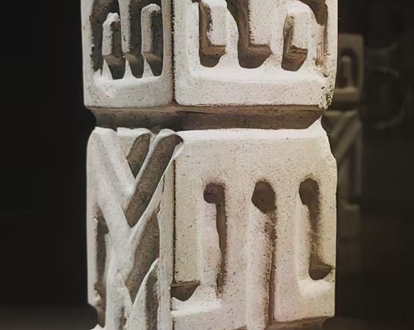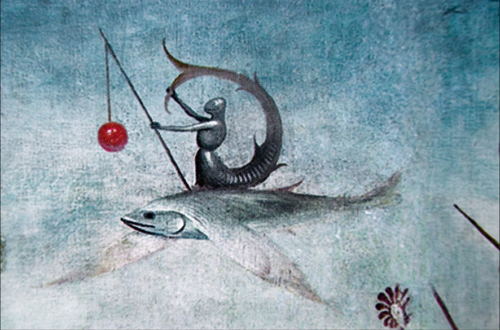(diciembre 23, 2022)
Relational and Social Constructionist Consortium of Ecuador (IRYSE)
Diego Tapia Figueroa, Ph.D. and Maritza Crespo Balderrama, M.A.
“»There are two postmodern paths… one leads to the landscape of the «already said»… The other leads to the ‘not yet said’ – the novelty that occurs in dialogue.»
(Harlene Anderson, 1999, p. 81)
We base ourselves for this series, on this thesis, from which we extract -adapting them- the proposals and invitations to a different relational position for the construction of the process of transformative therapeutic dialogue.
How are social constructionism and collaborative and dialogic practices useful for the relational co-construction of space for therapeutic training and supervision? Tapia Figueroa, Diego, Thesis (2018) for the Ph.D. with the Free University of Brussels (VUB) and the TAOS INSTITUTE of the United State.
Guiding principles and premises of social constructionism.
Josep Seguí (2012) translates in his blog the principles of this orientation proposed by Kenneth Gergen, which are the ones that guide the present research, and which are expanded and extensively commented on the following tables:
| PRINCIPLES OF SOCIAL CONSTRUCTIONISM | CONTEXTUALIZED REFLECTIONS |
| We live in worlds of meaning. We understand and value the world and ourselves in ways that emerge from our personal history and shared culture. | The worlds we create and build are, precisely because we endow them with meaning in social interaction. The understandings and valuations we develop respond to who we are and the culture that shapes us. We are beings of our time and, at the same time, our social contexts are loaded with different meanings that speak to us and with which we dialogue. |
| The worlds of meaning are intimately related to action. We act primarily in terms of what we interpret as real, rational, satisfying, and good. Without meaning it would not be worth doing something. | It is social actions that construct the meanings of our worlds and relational contexts. We need to act guided by a continuous interpretation of those we see as good or positive; We are guided by these meanings to discern, decide, and act accordingly. |
| Worlds of meaning are built within relationships. What is needed to be real (rational) is born in relationships. Without relationships, there would be little meaning. | By weaving relationships, meanings arise, are created and constructed; it is a joint construction: the product of links and connections. Symbolic codes, what is defined as important, have to do with the commitment, and construction that occurs in relationships. That’s where we make ourselves, understand each other and we can meet. |
| New worlds of meaning are possible. We are not possessed or determined by the past. We can abandon or dissolve dysfunctional ways of life, and together create alternatives. | It is possible to get out of determinisms, both intrapsychic archaeology, and ideologies that make the past an oppressive destiny; it is our responsibility to generate, with others, different alternatives and new lifestyles that respond to the type of person we want to be and the contexts in which we want to live. |
| To hold what is valuable, or to create a new future, participation in relationships is required. If relationships are damaged or destroyed, we lose the ability to sustain a way of life and create new futures. | It is the free and committed participation in the relationships that are built in local contexts which generates new ways of understanding and interpreting reality (new contexts) that have value because they transform the participants and allow the future to come. |
| When worlds of meaning intersect, creative results can appear. New forms of relationship, new realities, and new possibilities may emerge. | It is the relational richness that allows the emergence of creative capacities; and it is in the diversity of perceptions, points of view, and interpretations, that the meanings themselves are transformed by this shared dialogue; in addition, properly creative actions arise that make new alternatives possible. When worlds of meaning come into conflict, they can lead to alienation and aggression, which harms relationships and their creative potential. The non-coordination of joint and mutually acceptable meanings imposes the logic of the power struggle that ends up restricting and limiting -not only the relational possibilities and their creativity- but the freedom of the participants. Through creative care of relationships, the destructive potentialities of conflict can be reduced or transformed. When we are present in a relationship, we take care of it in practical ways, because we participate in it and coordinate the paths it deserves to go through. Hence, when the conflicts inherent in humans arise, it will be easier to dismantle their destructive burdens or transform them positively. |
| The agreements presented above do not constitute beliefs. They are neither true nor false. They are ways of approaching life that, for many, constitute a great promise. | An orientation for practice is proposed, not a recipe book or a manual, much less a dogma to be followed. It is an invitation to rebuild, with relational ethics, possible worlds, and futures. |
The basic premises of social constructionism, which were part of the process with these technical teams, are the following:
1. Reality is a social construct.
2. Reality is a construction of language.
3. Realities are organized and maintained.
4. Reality is made by narratives or stories.
5. There are no basic or essential truths.
From these orientations, we learn that there is no given, objective, essential or true reality; but that what we socially agree as reality, is precisely a social and historical construction. In addition, what we have agreed as reality is such, because it has been built in language -with others- and responds to joint construction of meanings.
These realities organize social worlds and contribute to making them work; in fact, they are socially and culturally organized. It is the descriptions, stories, and narratives that build reality.
We are made of stories -the ones we tell about ourselves to others, and the ones others tell about us- in a narrative and relational interweaving that creates realities. Freeing ourselves from modernist metaphysics, we recognize the absence of single truths valid for everyone, all the time and in all cultures, of dogmas to follow or of unalterable essences; with critical and reflective thinking we open ourselves to difference and possibilities.
The co-research was also based on the philosophical premises presented by Harlene Anderson (1996, p. 29) interpreted and applied to the local context of the work process:
| PHILOSOPHICAL PREMISES | CONTEXTUALIZED REFLECTIONS |
| Human systems are systems of generation of language and meaning. | Human beings develop in systems, within them, we occupy a place in relation to others. This premise implies that what defines the place in which we place ourselves is the language and meanings that each one -in relation to others- gives (to oneself, to others, and to one’s own relationship). |
| They are more forms of social action than independent individual mental processes when they construct reality. | Reality is built from the relationship with others, in the social sphere and not so much in an internal, individual process, isolated from the context and relationships. |
| An individual mind is a social compound, and therefore the self itself is a social, relational compound. | Individuals are constituted in relationships, not by spontaneous generation or with limited ties (relationship with the mother for example) but in society, that in fact, includes those initial links, but expands towards the community, at first in the closest spaces (school, neighborhood, church) and then expands by enhancing contact with others and initiating relationships sustained in dialogues that do not end but are rebuilt. |
| The reality and meaning we attribute to ourselves, and attribute to others, and the experiences and events of our lives, are interactional phenomena created and experienced by individuals in conversation and action with others and with us. | Reality is perceived through filters, which are built from experiences in relation to others and the environment; in that sense, there is no single reality but the one that arises from the relationship and the meaning that the relationship gives to the fact. |
| Language is generative, gives order and meaning to our life and our world, and operates as a form of social participation. | Language -which goes beyond words- is constituted by the energy that gives meaning to the person and his relationships. How we talk and speak to each other (not only with our voice, but also with the gestures, the looks, the silences) will determine who we are, and who we are in relationships. |
| Knowledge is relational; it is inserted in language and in our daily practices, where it is also generated. | The knowledge that is useful for life, is generated in relation to the other; when we find in each context in which we develop, a meaning that allows us to build ourselves. It is a generative and active process that has always the potential to happen. |

Kenneth Gergen (2009) uses this figure as a metaphor for the multiple relationships we harbor. In the central circle is what from a modern position would be understood as a person or individual. Oval circles represent different relationships that this person has (in black) or potentially may have (in gray). The person is the intersection of all these relationships.
SUGGESTED BIBLIOGRAPHY
Anderson, H. y Goolishan, H. (1996). The expert is the client: ignorance as a therapeutic approach. In Mc Namee. S&Gergen K. Therapy as a social construct. (pp. 45-59) Barcelona, Spain, Editorial Paidós.
Anderson, H. (1999). Conversation, language and possibilities. A postmodern approach to therapy. Buenos Aires, Argentina Editorial Amorrortu.
Gergen, K (1996). Realities and relationships. Approaches to social construction. Barcelona, Spain. Editorial Paidós.
Gergen, K. (26 March 2009). Interview at the School of Psychology of the Adolfo Ibáñez University. Retrieved from https://www.youtube.com/watch?v=IUirLCs9LIw
Gergen, J. (2011). Build reality. The future of psychotherapy. Barcelona, Spain: Editorial Paidós.
Gergen, K. & Gergen, M. (2011). Reflections on social construction. Barcelona Spain:Editorial Paidós.
Gergen, K (2014). From Mirroring to World-Making: Research as Future Forming, Recuperado de: https://taoslearning.ning.com/groups2/global-relational-research-network/virtual-symposium-2018
Gergen, K (2016). The Relational Self. Beyond the Self and the Community. Bilbao, Spain: Editorial Desclée de Brouwer, S.A.
IRYSE (2018) Blog of the Relational and Socioconstructionist Institute of Ecuador (IRYSE): https://iryse.org/
McNamee, S. (2013). The social poetry of research committed to relationship. Research as conversation. In Deissler, K. & McNamee, S. (Ed) Filo and Sofia in dialogue: the social poetry of therapeutic conversation (pp. 102-109). Ohio, USA: Ed. Taos Institute Publication.
Tapia, D. (2007). Postmodern psychotherapies in the systemic field. Theoretical, practical and clinical materials from social constructionism. Quito, Ecuador: Editorial. Cif
Tapia Figueroa, Diego, Thesis (2018) for the Ph.D. with the Free University of Brussels (VUB) and the TAOS INSTITUTE of the USA.

English translation of Bruno Tapia Naranjo.

